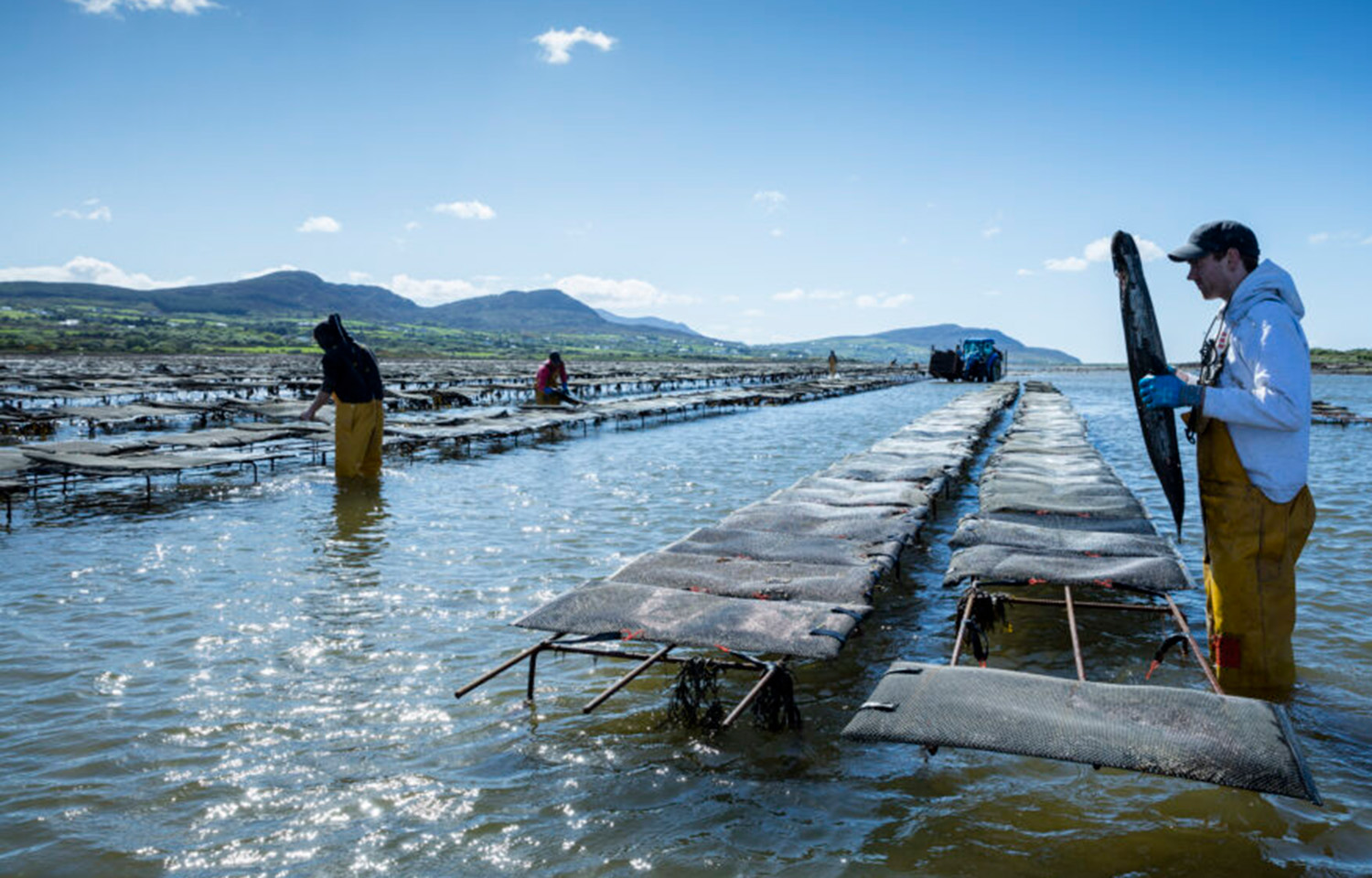There has been strong interest in a new funding scheme for sustainable aquaculture introduced recently by the Irish government, according to Bord Iascaigh Mhara (BIM) Seafood Technical Services Director Rory Campbell.
BIM, the Irish state body developing the seafood sector, is managing the Sustainable Aquaculture Scheme and the Aquaculture Capital Investment Scheme, two new programs announced on 8 July by the Irish Agriculture Ministry. The programs are co-funded by the governments of Ireland and the European Union under the European Maritime, Fisheries, and Aquaculture Fund (EMFAF), which is in the process of allotting EUR 258 million (USD 279 million) to Ireland for a period stretching between 2021 and 2027.
Campbell said applicants can apply for half the cost of capital investments.
“Since the Sustainable Aquaculture Scheme was opened last week, we’ve seen strong interest from industry,” Campbell told SeafoodSource.
Teresa Morrisey, manager of the aquaculture desk at the Irish Farmers Association, said she was hopeful the grants will spark a wave of investment activity in Ireland’s aquaculture sector. Since the Brexit Adjustment Fund – a fund for seafood firms negatively impacted by Brexit – closed in 2023, Irish seafood firms have struggled, according to Morrisey.
“There has been a funding gap. People have been holding off making investments,” she said.
Additionally, difficulties with Ireland’s aquaculture licensing system, which was found to be in contravention of E.U. codes on wildlife habitat, has resulted in underinvestment in aquaculture, Morrisey said.
“Toward the end of the last European Maritime, Fisheries, and Aquaculture Fund, we saw there was money available, but because of the licensing situation, it wasn’t fully drawn down because of the licensing issue,” Morrisey said.
The new funding schemes will provide up to 50 percent of the cost of closed recirculation systems, thereby minimizing water use. Cash is also available for switching aquaculture systems to renewable energy and for reducing water use. Morrisey said she expects some Irish aquaculture companies to seek grant aid in order to reduce energy costs by installing solar panels.
Morrisey said she doesn’t expect any major investments in recirculating aquaculture systems which, she says, are seen as too expensive. But, Irish seafood firms can use the money for product innovation and for diversification of aquaculture production and species cultured. Funds are also available under the scheme for integrated multitrophic aquaculture systems, which have seen their popularity rise in the past few years.
Weaker demand in traditional E.U. markets and in China has worried Irish aquaculture companies that have also faced a surge in energy costs in recent years, according to Morrissey.
“Markets are not great. Margins are very tight,” she told SeafoodSource. “Some in the shellfish sector argue that it’s subsidies rather than grants that are needed.”








